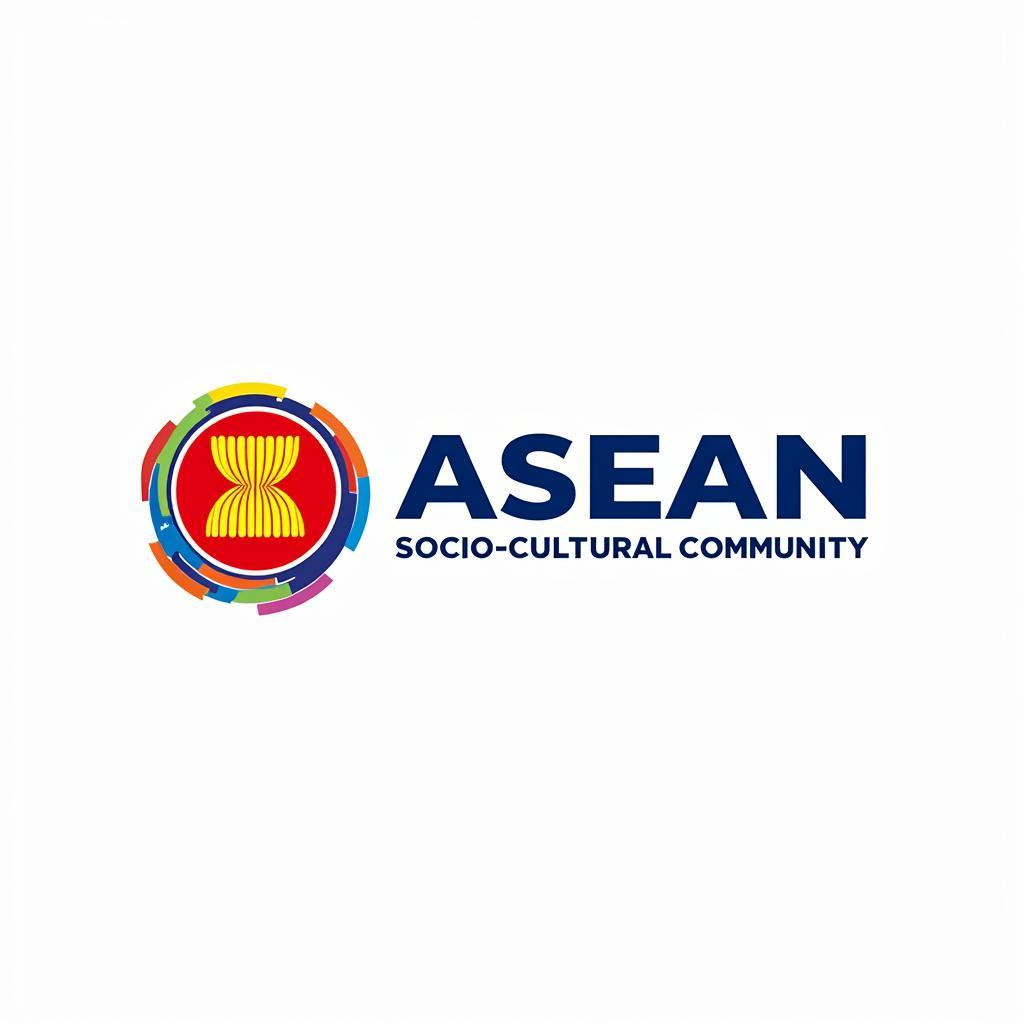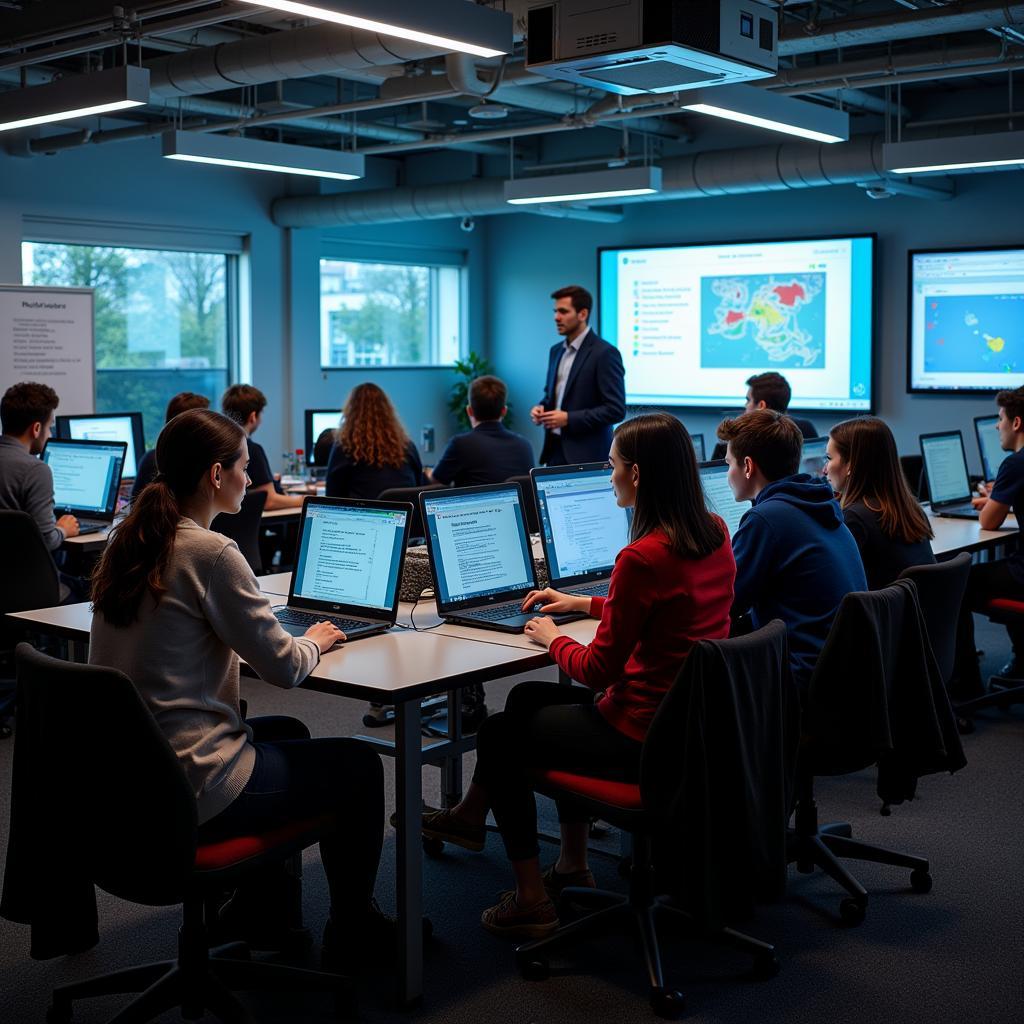The ASEAN Socio-Cultural Community (ASCC) represents one of the three pillars of the ASEAN Community, standing alongside the ASEAN Political-Security Community (APSC) and the ASEAN Economic Community (AEC). The ASCC strives to cultivate a shared identity among ASEAN member states, fostering a region that is socially cohesive and responsible with a population that enjoys enhanced wellbeing and benefits from equal opportunities.
 ASEAN Socio-Cultural Community logo
ASEAN Socio-Cultural Community logo
The Importance of the ASCC in ASEAN Integration
The ASCC plays a pivotal role in bolstering ASEAN integration by emphasizing the human dimension. While economic cooperation and political stability are critical, the ASCC recognizes that a strong and unified ASEAN necessitates a shared sense of identity and purpose among its people.
By prioritizing social development, cultural exchange, and human security, the ASCC aims to bridge societal divides, enhance living standards, and create a more inclusive and resilient ASEAN.
Key Focus Areas of the ASCC
The ASCC concentrates its efforts on a diverse range of areas to effectively address social and cultural issues within the region. These key focus areas include:
- Human development: Investing in education, healthcare, and social welfare programs to improve the quality of life for all ASEAN citizens.
- Cultural exchange: Promoting understanding and appreciation of the diverse cultures within ASEAN through initiatives that encourage cultural exchange and dialogue.
- Social welfare and protection: Strengthening social protection mechanisms and addressing social issues such as poverty, inequality, and the rights of vulnerable groups.
- Environmental sustainability: Promoting environmental awareness and cooperation among ASEAN member states to address shared environmental challenges.
- Disaster management: Enhancing regional capacity to prepare for and respond effectively to natural disasters and other emergencies.
 ASEAN Cultural Exchange Program
ASEAN Cultural Exchange Program
The ASCC Blueprint and Its Objectives
To provide a roadmap for its work, the ASCC operates under a comprehensive blueprint that outlines its goals and priorities. The current blueprint, adopted in 2015, sets out a long-term vision for the ASCC up to 2025.
This blueprint lays out several key objectives, including:
- A people-oriented, people-centered ASEAN: Ensuring that the needs and aspirations of ASEAN citizens are at the heart of all ASCC initiatives.
- An ASEAN identity: Fostering a sense of belonging and shared identity among the people of ASEAN.
- ASEAN caring and sharing society: Building a more equitable and inclusive society that promotes social justice and solidarity.
- Resilient and dynamic ASEAN Community: Strengthening the resilience of ASEAN communities to withstand shocks and challenges, both internal and external.
The Role of Dialogue Partners and Other Stakeholders
The ASCC recognizes the importance of collaboration and partnership in achieving its goals. It actively engages with a range of stakeholders, including:
- Dialogue Partners: Countries and organizations outside of ASEAN that share the organization’s objectives and actively contribute to its programs.
- Civil society organizations: Non-governmental organizations and other groups that work at the grassroots level to address social and cultural issues.
- The private sector: Businesses and corporations that can contribute to ASCC goals through corporate social responsibility initiatives and investments.
Measuring the Success of the ASCC
Assessing the progress of the ASCC involves monitoring a set of key performance indicators (KPIs) that reflect its objectives. These KPIs cover areas such as:
- Education: Literacy rates, enrollment ratios, and educational attainment levels.
- Health: Life expectancy, infant mortality rates, and access to healthcare services.
- Social welfare: Poverty rates, employment rates, and access to social protection programs.
- Culture: Levels of cultural exchange and participation in cultural events.
- Environment: Environmental performance indicators and progress on environmental agreements.
 ASEAN Community Working Together
ASEAN Community Working Together
Challenges and Opportunities for the ASCC
The ASCC faces a number of challenges in its pursuit of a more integrated and prosperous ASEAN. These challenges include:
- Diversity of cultures and languages: Bridging cultural and linguistic divides among member states.
- Uneven levels of development: Addressing disparities in economic and social development across the region.
- Non-traditional security threats: Responding effectively to emerging threats such as transnational crime, climate change, and pandemics.
Despite these challenges, the ASCC also has significant opportunities to make a real difference in the lives of people in Southeast Asia. These opportunities include:
- Leveraging technology: Utilizing technological advancements to connect people, promote cultural exchange, and improve access to education and information.
- Harnessing the demographic dividend: Capitalizing on the region’s young and growing population to drive economic growth and social progress.
- Strengthening partnerships: Deepening collaboration with dialogue partners, civil society organizations, and the private sector to leverage resources and expertise.
Conclusion
The ASCC is a testament to ASEAN’s commitment to building a community that is not just economically integrated but also socially cohesive and culturally vibrant. By focusing on the well-being of its people, promoting cultural understanding, and addressing social challenges, the ASCC plays a critical role in realizing the full potential of ASEAN. As ASEAN continues to navigate a complex and rapidly changing world, the ASCC’s focus on human security and development will be more important than ever.
For any inquiries or assistance regarding Asean Media or the ASCC, please don’t hesitate to contact us. Our dedicated customer support team is available 24/7 to assist you. You can reach us at Phone Number: 0369020373, Email: [email protected], or visit our office located at Thon Ngoc Lien, Hiep Hoa, Bac Giang, Vietnam.


